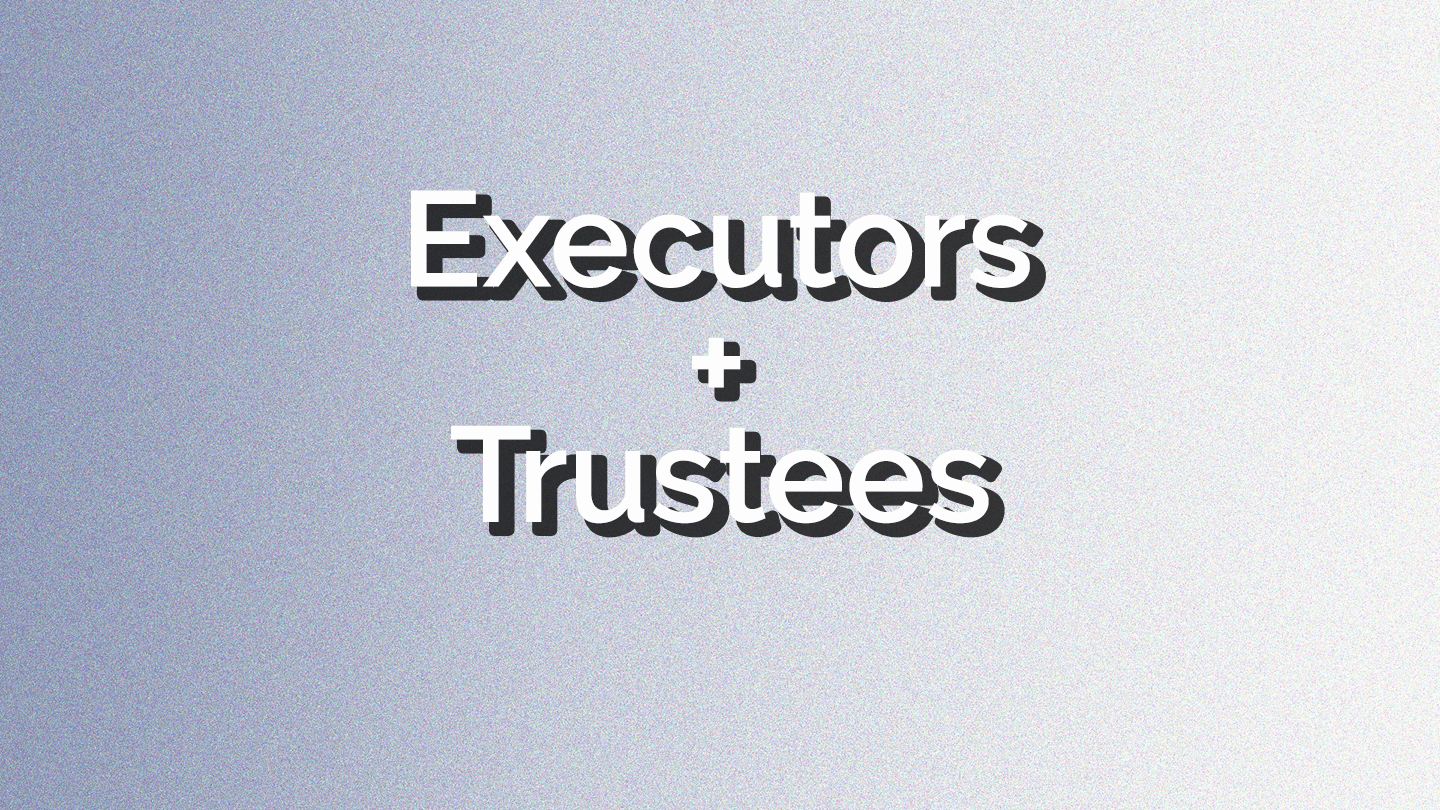
What are Executors and Trustees?
2 min read
Executors and trustees play an important role in estate planning and administration. Appointing them in your Will is essential for ensuring that your wishes are carried out after you pass away. This guide provides important information about executors and trustees to help you navigate the process effectively.
What is an Executor/Trustee?
An executor and a trustee may serve overlapping roles in estate management. While their specific responsibilities differ, they are often the same individuals appointed to handle both tasks.
Key Responsibilities of Executors and Trustees
Your executors and trustees will be responsible for:
- Collecting Your Will: They will locate and present your original Will to the probate court.
- Managing Your Estate: They will work with the court or solicitor to gather and manage your estate.
- Valuing Assets: They will appraise your assets and handle any estate duty formalities.
- Settling Debts: They will clear any outstanding debts and liabilities.
- Distributing Your Estate: They will distribute your assets according to your Will.
- Managing Trusts for the Beneficiaries: For example, if you have minor children, they will hold your assets in trust until the children reach adulthood.
Who Should You Choose as an Executor/Trustee?
When selecting an executor or trustee, consider family members or friends you trust. The chosen individual must be:
- Over 21 years old
- Of sound mind
- Not bankrupt
It’s advisable to discuss this role with them to ensure they are willing to serve.
In many cases, the first choice for an executor is a spouse, followed by other family members or close friends. Remember, your executors/trustees have the authority to hire solicitors or professionals to assist in administering your estate, with fees covered by your estate.
How Many Executors/Trustees Can You Appoint?
You can appoint up to four executors/trustees using our online Will service, divided into two groups: a maximum of two primary executors and two backups. This arrangement ensures a system of checks and balances in the estate administration process. Alternatively, you may choose one primary executor with a secondary option.
Can Executors/Trustees Be Guardians?
Yes, your executors/trustees can also serve as guardians for your children. However, consider whether they are suitable for both roles.
Can an Executor/Trustee Be a Beneficiary?
Absolutely! An executor/trustee can also be a beneficiary in your Will. While this is common, be aware of potential conflicts of interest, as the executor may face dilemmas if their interests conflict with those of other beneficiaries.
Steps for the Executors to Follow When the Time Comes
When the time comes to fulfil the role of executor or trustee, follow these essential steps:
1. Locate the Original Will
The first step is to find the original Will, not a copy. If you're unsure about its location, contact us to check if NobleWills is holding it. We may also have other important documents that our online platform provides, such as:
- Wills for other countries
- A List of Assets
- A Letter of Wishes
- A Deed of Temporary Guardianship
2. Take Action After Locating the Will
Once you have the Will, you can either:
- Visit the Probate Court directly, or
- Engage a law firm specializing in probate services. NobleWills can refer you to professionals if needed.
3. Manage Other Important Details
As an executor, you may also need to:
- Arrange the funeral
- Secure and manage the deceased's assets
- Make arrangements for any minor children
- Collect necessary documents for probate, including the death certificate, identification documents, passport, and marriage certificate (if applicable).
Conclusion
In conclusion, appointing an executor or trustee is crucial for ensuring your wishes are honoured and your estate is managed with care. By choosing trusted individuals for this responsibility, you provide peace of mind for your loved ones.
- executors
- what are executors
- executors and trustees in a Will
- probate
- Hong Kong probate
- trustees